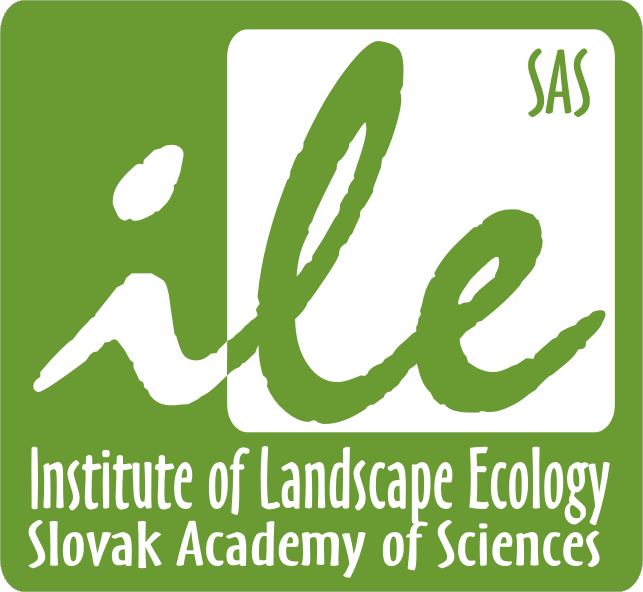You are here
Publikańćn√° etika ńćasopisu ŇĹivotn√© prostredie
(na z√°klade odpor√ļńćania vydavateńĺstva Elsevier a¬†organiz√°cie COPE ‚Äď Committee on Publication Ethics)
ńĆasopis ŇĹivotn√© prostredie chce zabezpeńćiŇ• etick√© a¬†kvalitn√© publikovanie v√Ĺsledkov vedeck√©ho v√Ĺskumu a¬†pr√°ce. Ońćak√°va preto s√ļhlas so Ň°tandardmi etick√©ho spr√°vania od vŇ°etk√Ĺch zainteresovan√Ĺch: autorov, vydavateńĺa, recenzentov aj redaktorov.
 
Autori: Autori odovzdaj√ļ na publikovanie origin√°lne v√Ĺstupy svojej vedeckej pr√°ce, v¬†ktor√Ĺch zabezpeńćia podrobn√Ĺ a¬†ńćo najobjekt√≠vnejŇ°√≠ opis met√≥d, techn√≠k a¬†v√Ĺsledkov v√Ĺskumu tak, aby ich v√Ĺskum bolo moŇĺn√© zopakovaŇ•. Z√°roveŇą zabezpeńćia, aby pouŇĺili v√Ĺsledky vlastnej vedeckej ńćinnosti, pr√≠padne, ak pouŇĺij√ļ diela in√Ĺch autorov, aby tieto n√°leŇĺite citovali. Podvodn√© alebo vedome nepresn√© v√Ĺroky a¬†plagi√°torstvo predstavuj√ļ neetick√© spr√°vanie a¬†s√ļ neprijateńĺn√©. Podanie rovnak√©ho rukopisu do viac ako jedn√©ho ńćasopisu s√ļńćasne predstavuje neetick√© spr√°vanie a¬†jeho publikovanie je neprijateńĺn√©. Zodpovedn√Ĺ autor by mal zabezpeńćiŇ• √ļpln√Ĺ s√ļhlas vŇ°etk√Ĺch spoluautorov pri schvańĺovan√≠ koneńćnej verzie pr√≠spevku a jej publikovan√≠.
 
Redakcia: Redaktori bud√ļ hodnotiŇ• rukopisy v√Ĺhradne na z√°klade ich akademick√Ĺch v√Ĺsledkov. Redaktori nesm√ļ pouŇĺ√≠vaŇ• nepublikovan√© inform√°cie vo vlastnom v√Ĺskume bez v√Ĺslovn√©ho p√≠somn√©ho s√ļhlasu autora. Redaktori prijm√ļ primeran√© opatrenia ako odozvu na pr√≠padn√© sŇ•aŇĺnosti, t√Ĺkaj√ļce sa neetick√©ho spr√°vania v¬†predloŇĺen√Ĺch alebo publikovan√Ĺch ńćl√°nkoch.
 
Recenzenti: Ak√©końĺvek rukopisy prijat√© na hodnotenie¬†musia byŇ• povaŇĺovan√© za d√īvern√©. Inform√°cie alebo poznatky z√≠skan√© prostredn√≠ctvom hodnotenia musia byŇ• povaŇĺovan√© za d√īvern√© a nesm√ļ sa pouŇĺ√≠vaŇ• na osobn√Ĺ prospech. Recenzia m√° byŇ• uroben√° objekt√≠vne, pripomienky maj√ļ byŇ• formulovan√© a¬†vyargumentovan√© jasne, aby ich autori mohli pouŇĺiŇ• na zlepŇ°enie svojho ńćl√°nku. Ak recenzent vie o¬†svojej odbornej nesp√īsobilosti alebo o¬†konflikte z√°ujmov pri posudzovan√≠ ńćl√°nku, ozn√°mi to redaktorovi a¬†odmietne hodnotenie vykonaŇ•.
 
Publication Ethics and Publication Malpractice Statement
(Based on Elsevier recommendations and COPE's Best Practice Guidelines for Journal Editors)
Journal ŇĹivotn√© prostredie is committed to ensuring ethics in publication and quality of articles. Conformance to standards of ethical behaviour is therefore expected of all parties involved: Authors, Editors, Reviewers, and the Publisher.
 
Authors: The authors transmitted to publish original scientific work of its outputs, which provide a detailed and as objective as possible description of the methods, techniques and results of research. While ensuring that use the results of their own scientific work, or if the works of other authors are used, this has been appropriately acknowledged. Fraudulent or knowingly inaccurate statements constitute plagiarism and unethical behaviour and are unacceptable. Submission of the same manuscript to more than one journal concurrently constitutes unethical behaviour and its publishing is unacceptable. Responsible author should ensure full consent of all co-authors in approving the final version of the paper and its publication.
 
Editors: Editors should evaluate manuscripts exclusively on the basis of their academic merit. An editor must not use unpublished information in the editor's own research without the express written consent of the author. Editors should take reasonable responsive measures when ethical complaints have been presented concerning a submitted manuscript or published paper.
 
Reviewers: Any manuscripts received for review must be treated as confidential documents. Privileged information or ideas obtained through peer review must be kept confidential and not used for personal advantage. Reviews should be conducted objectively, and observations should be formulated clearly with supporting arguments, so that authors can use them for improving the paper. Any selected referee who feels unqualified to review the research reported in a manuscript or knows that its prompt review will be impossible should notify the editor and excuse himself from the review process. Reviewers should not consider manuscripts in which they have conflicts of interest resulting from competitive, collaborative, or other relationships or connections with any of the authors, companies, or institutions connected to the papers.
 
 
 
Theme by Danetsoft and Danang Probo Sayekti inspired by Maksimer
